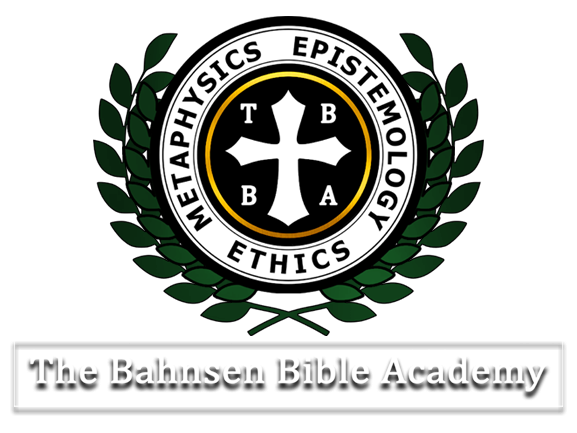0:00 Opening Remarks…Major Points From First Lecture
0:15 Lecture Points That Will Be Covered: #1) Belief Is Essential To Any Analysis To Self-Deception #2) The Crucial Characteristics Of Belief #3) The Incompatibility Of Belief That Are Involved In Self-Deception If Using “The Other Deception” Model #4) Motivated Rationalizing The Evidence Of Self Covering Intention As The Way The Self-Deceiver Pulls-Off Deceit
0:49 #1) Belief Is Essential To Any Analysis To Self-Deception…False Believing
2:10 A Critique Of Herbert Fingarette (philosopher and professor of philosophy at the University of California)
9:31 #2) The Crucial Characteristics Of Belief
11:53 …The Traditional Attempts To Analyze Belief Tend To Fail…An Analysis Of Belief Is Impossible…The General Characterization Of Belief…A Focus On Facets Of Belief GLB Deems Relevant To The Final Goal Of Analyzing Self-Deception
13:20 BELIEF: Belief is a positive, intellectual, propositional attitude which is expressed in a large variety of symptoms (some of which are subject to degrees of strength).
14:40 A MORE PRECISE DEFINITION OF BELIEF: At base belief is an action-guiding state of mind; it is a map-like mental state that is a potential cause of particular action (mental, verbal, or bodily). Specifically, belief is a persisting, intentional, mental state (made up of ideas which give a determinate character to the state corresponding to the proposition believed) with a stimulus-independent causal capacity to affect or guide one’s theoretical and practical behavior, under suitable circumstances, in a wide variety of manifestations. In what f
18:01 The bases for ascribing a belief to someone (the marks by which we discern a belief) are provided by both occurrent and dispositional accounts of belief. We consider the person’s outward assertion of p (or inward, if ourself), and the way in which he behaves, reasons, gestures, feels,etc.; we take into account his decisions, emotions, habits, and even inaction.
19:32 To put it simply: over time, actions will speak louder than words.
19:55 WHAT IS IT TO GIVE ASSENT? To give assent to a proposition is explicitly to spell out (inwardly or outwardly) how one stands in respect to that proposition, thereby bringing one’s belief to a conscious level of experience.
20:29 The cognitive and affective aspects of belief can sometimes be separated in a person and even be at odds with each other (e.g., hoping for what cannot be, fearing what you know does not hurt, failing to feel conviction in the face of strong proof).
22:34 It is a false picture we entertain of intelligent beings if we think of them as incessantly talking to themselves internally and always making explicit (or reporting on) their mental states and acts.
22:48 RECAP
22:58 #3) Thirdly, we must add that self-ascriptions of belief by way of assent – just like disavowals of belief – are not incorrigible (i.e., there can be overriding reasons to think them false) and therefore not infallible (i.e., such reports can be mistaken). A person can be held to believe something from which he dissents, and can be found not to believe something to which he assents. To some appreciable extent we can be mistaken about our own beliefs. This may seem surprising, but there are after all limits on
24:59 Fourth, the last thing about belief which calls for special mention is its voluntariness. This may seem strange since we have above spoken of belief as a propositional attitude which is “constrained” by the evidence as seen by the person in question. The seeing of the evidence as this or that – the taking of it in a particular way – constrains one to believe as he does. However, one can exercise some control over the way in which he sees that evidence – directing his attention, giving prominence to some matters over others, suppressing what he does not wish to encounter,re-evaluating the significance of past considerations, etc.
27:44 RECAP (The Crucial Characterization Of Belief)…we can now proceed to explicate a non-paradoxical account of self-deception. …Incompatible Beliefs, Motivated Rationalization, and Self-Covering Intention
32:26 The incompatibility between these two beliefs is not logical but behavioral & practical in nature.
35:37 #4) Motivated Rationalizing The Evidence Of Self Covering Intention As The Way The Self-Deceiver Pulls-Off Deceit
38:19 Can One Try To Deceive Himself On Purpose?
42:44 SUMMARY
44:35 GLB Puts It In Plain English, Self-Deception Involves Deception By The Self, Of The Self, For The Sake Of The Self, And About The Self. …Some Examples
48:45 Closing Remarks
Based on Dr. Bahnsen’s doctoral dissertation, these lectures explore the important subject of self-deception and the nature of unbelief. How can the unbeliever both know and not know God? This is an important contribution to the field of apologetic study.


